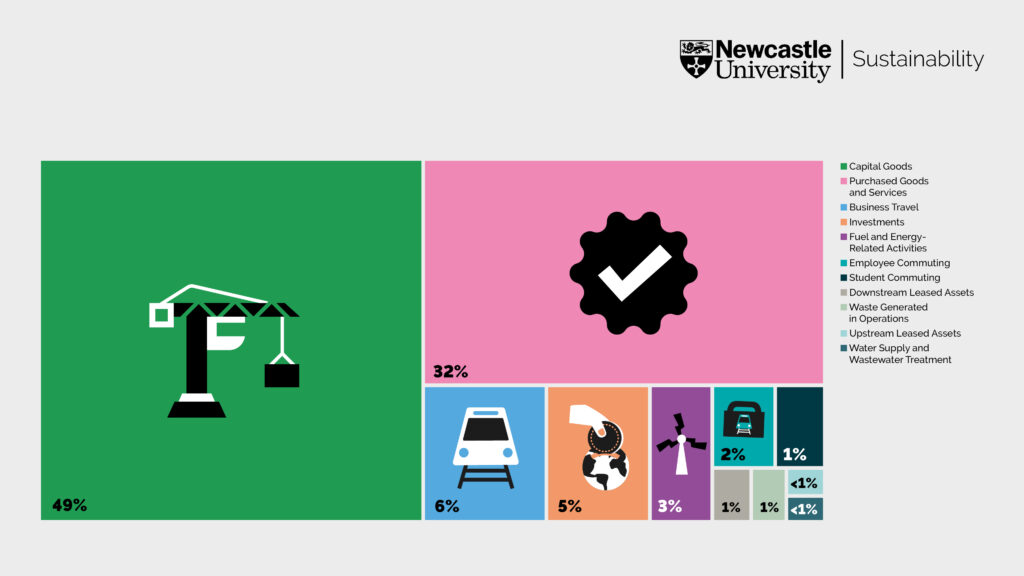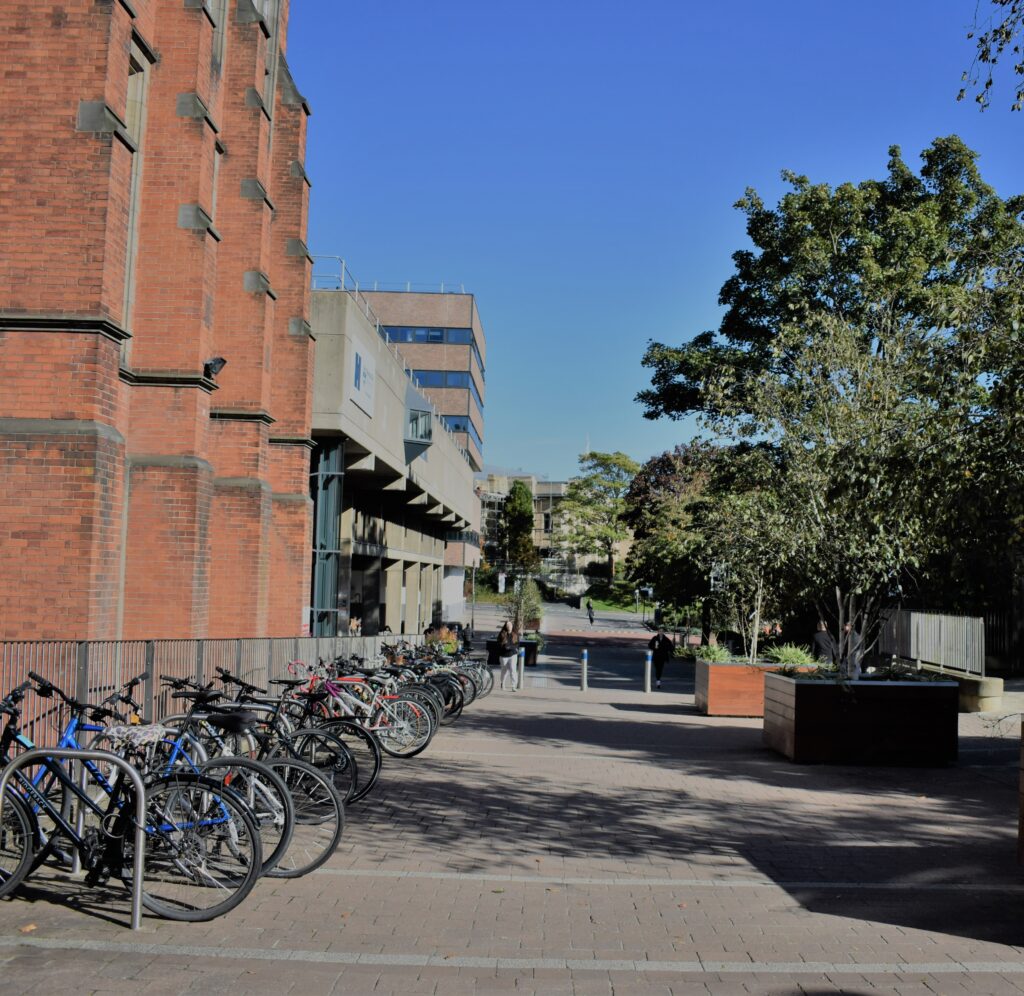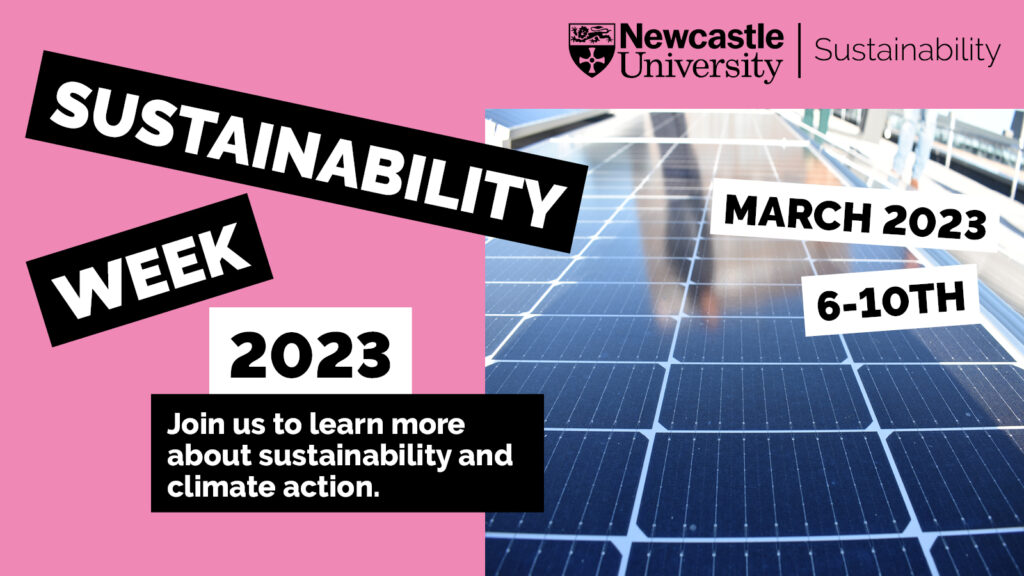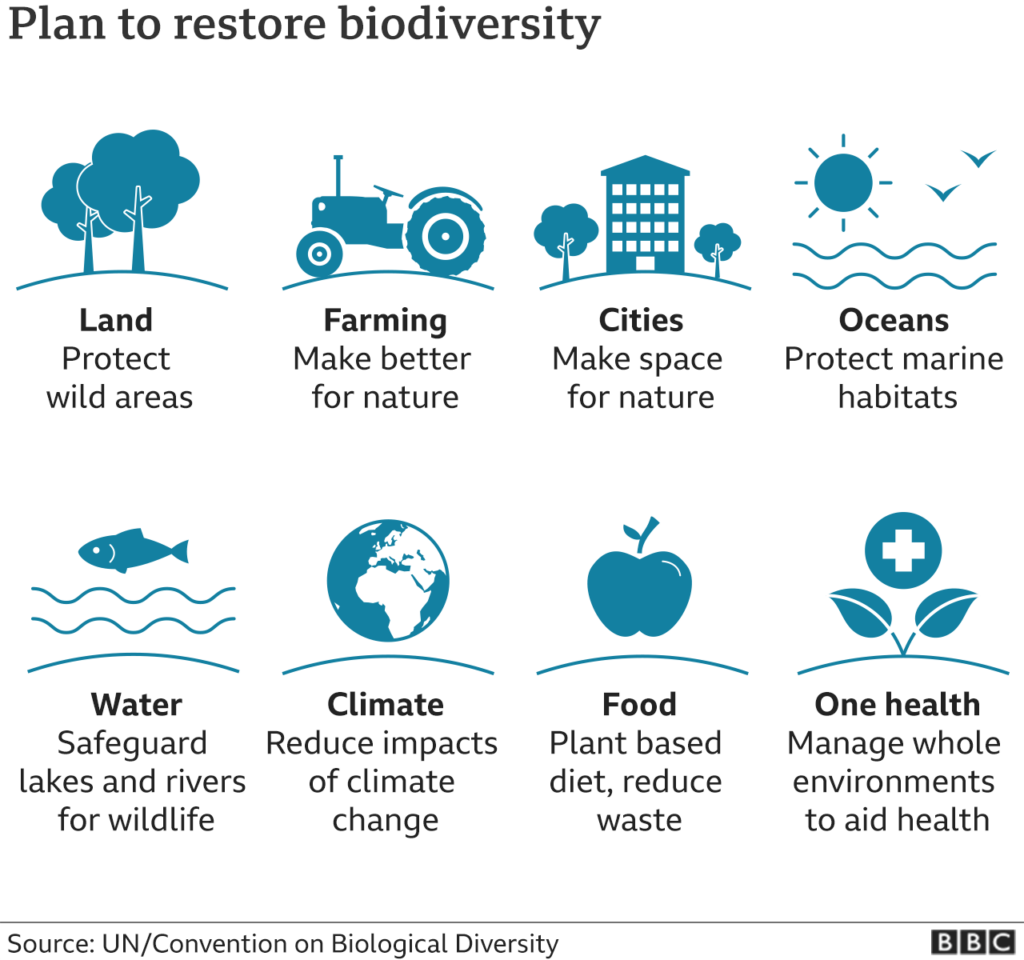Commuting at Newcastle University
Commuting is a part of nearly everyone’s working or studying life at Newcastle University, which is why it is included within our Climate Action Plan. Staff and student commuting contributes to around 3% of the University’s scope 3 carbon emissions alongside other sources such as business travel and capital goods. For many years, travelling by car has been the preferred travel option due to convenience, however there are more sustainable methods of commuting that create less emissions such as forms of active travel. The University community can decrease their individual carbon footprints through acts such as adapting their commuting habits, this would also decrease the University’s.

There are multiple forms of sustainable travel that we can use to get onto Newcastle University’s campus and this post aims to communicate the various benefits of them. We will also outline the facilities and initiatives that are available to staff and students which could make the methods of travel easier for you.
Active forms of travel
Active travel refers to the extensive variety of travel methods that require using your own body to get from A to B. This includes forms of travel such as walking, wheeling, cycling, running, and using a scooter. There are multiple benefits of active travel which include:
Benefits of active travel
- Environmental: Utilising active travel contributes towards the reduction of air pollution, as many forms of motorised transport contribute to air pollution. If we collectively avoid the use of private motorised transport when we can, we are able to reduce air pollution globally. This also helps to reverse the biodiversity loss that stems from increased global temperature.
- Mental wellbeing benefits: It has been noted by Sustrans that “an increase in physical activity has been proven to be associated with benefits to mental health”. Therefore, if your form of regular commuting includes physical activity, this could potentially help to improve your mental health.
Walking, wheeling, scooting and running to campus
Walking, wheeling, or running to campus are excellent methods of commuting as they all include the benefits listed. When travelling by these methods to campus, it is worth noting that there are facilities available on campus such as showers and changing facilities which are available for staff and students to use.
Locations of these facilities can be found in Newcastle University’s Travel Plan.
- Please read safety advice before beginning to use forms of active travel. There are some listed under Travel on Sustainable Campus.
Cycling to campus
If the previous methods of active travel are not suitable for you, cycling is an alternative option. This can be an excellent option if you have a longer commute and the University has some initiatives and groups that may help you with the transition.
- The University has multiple storage facilities available across campus where you can leave your bike for the day. By providing storage facilities and compounds we hope to remove the worry about where to keep your bike while you are at work or studying. Information regarding where the storage facilities are and how you can get access to secure compounds can be found here.
- The University also has a Bicycle Users Group (BUG) that University staff and students can join on Microsoft Team
’s. The group communicates information to each other such as safety tips, useful commuting routes and other travel news that relates to all cycling matters.
To be added to the BUG Microsoft Teams group, please contact sustainable.campus@ncl.ac.uk with the subject “Join BUG”.
- The University provides a cycle-to-work-scheme benefit that helps staff members spread the cost using salary sacrifice when they are looking to purchase a new bicycle. The scheme is provided and managed by People Services.
- There are facilities, including showers, available on campus for those who use forms of active travel such as cycling to commute to the University.

Other forms of travel
There are plenty of other ways to travel to work when active transport alone is not feasible. These include:
- Bus – Many bus routes are currently only £2 for a single and £4 for a day ticket. There are also other discounts available for frequent bus users.
- Metro – A quick and easy way to get to the city centre. The Metro has many discounted travel schemes and information on these can be found here. Use the General Ticket Finder to find the best ticket for your journey.
- Rail – For longer journeys, rail can be a great way to commute. There are lots of options available to save on your journey including numerous types of railcard and season/flexi tickets.
Events coming up:
Sustainability Week: We are hosting a Sustainability-themed week in March. It will include a variety of in-person and virtual events and will conclude with an in-person Sustainability Festival on Friday 10th March. Please join us to learn more about sustainability and climate action at Newcastle University.

Fake bills February: Are you a first-year student who is worried about paying energy bills next year after living in halls? We are collaborating with ResLife who work within Newcastle University’s Accommodation Service to break down the confusion surrounding energy bills. With the cost-of-living crisis being a prominent element in everyday life for many students, we are aiming to help you feel more confident in understanding what you will be paying for.
If you are a student who lives in one of Newcastle University’s student villages, you can enter a competition that will provide you with a mock energy bill so you can work out some missing figures that are missing by using the equations and information provided. Enter the competition here.



